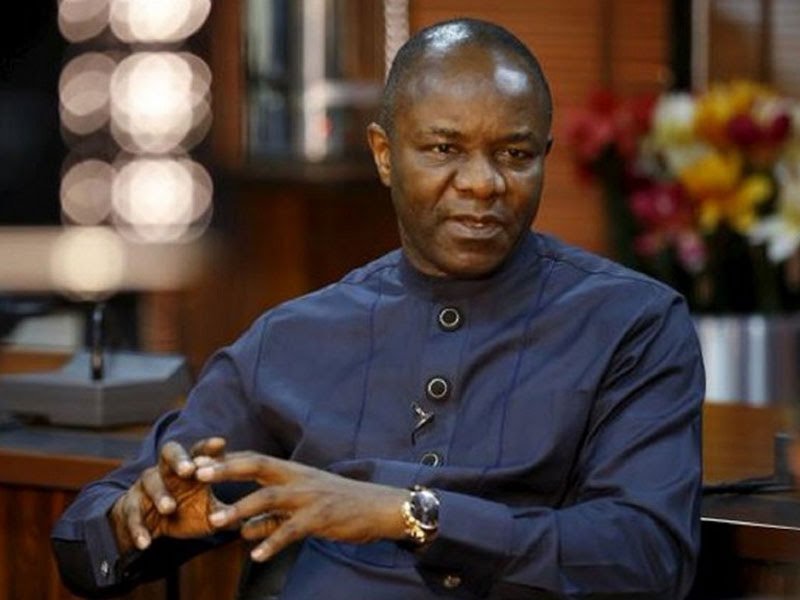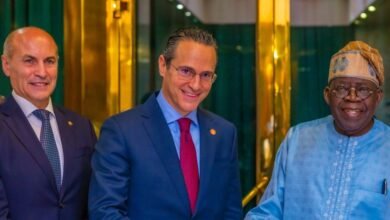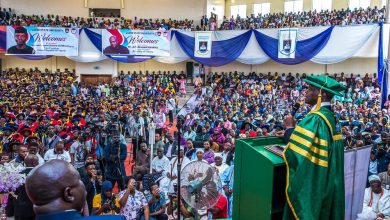News
Kachikwu has done Massive Job as Minister of State for Petroleum Resources -Francis Onyema

The recent revelation by Dr Ibe Kachikwu, the Honourable Minister of State for Petroleum Resources, that the landing cost of Premium Motor Spirit (PMS) has risen to N180 per litre, that is N35 higher than the pump price of N145 per litre it is currently sold, has renewed the debate over the removal of fuel subsidy and its implications.
Christine Lagarde, Managing Director IMF, has contributed to the debate admonishing that the Nigerian government must do away with fuel subsidy completely stating that with the low revenue the country is generating, removal of fuel subsidy would enable it to have enough funds to provide social needs such as build hospitals and support education.
Whatever the gains accruable with fuel subsidy removal are, Nigerians are worried about a higher cost of PMS than the current pump price of the product, today, especially given that our refineries are yet functional and effective. Some are questioning the strategies of Dr Kachikwu to ensure Nigeria exit importation of petrol in the near future.
Meanwhile, what Nigerians must know is that the oil and gas sector is a very complex one with businessmen interested to maximize profit in the sector even at the detriment of the State. It is more complex with the interest of Western bourgeoisie in the sector. These Western capitalists are exploitative at best. A good example of the much talked about exploitation of the West is the US known to pursue her foreign policies both diplomatically and militarily. It explains the death and annihilation of the Muammar Gaddafi legacy, at the hands of US soldiers. The death of Gaddafi was driven by the US vested interest in the Libyan oil. Nothing more.
Given this complex scenario, it therefore implies that policy formulation and implementation to resuscitate Nigeria’s oil and gas sector must toe the path of well-calculated and result oriented strategies in dealing with the dysfunctional nature of our petroleum industry. The Honourable Minister has not failed in this regard.
For the first time, in the life of our nation since oil was discovered in 1956 at Oloibiri, the establishment of modular refineries was proposed as a laudable policy to address the ineffectiveness of Nigeria to refine her crude oil products.
First, the government realised that to deal with the issues of incapacity of existing refineries to refine crude oil products optimally, there was the need to entrust more firms with the task refining leading to several Memorandum of Understanding (MoU) sealed between the Nigerian government and interested investors. This approach works best to create opportunities for these businessmen to refine petroleum products locally, thus, resolve strategically the issues of landing cost and hike in the price of refined products as well as create jobs.
Most of these industries are still in the formation stage across the country with their respective operation sites still under construction.
Kachikwu, speaking of the milestone recorded so far to get Nigeria’s modular refineries working, stated that the government had issued out 40 licenses to investors. “Out of the 40 licences issued, 10 have shown progress by submitting their programmes and putting something on the ground. By the end of 2019, we are assured that three private modular refineries would come on stream,” Kachikwu said.
As reported by Punch, the Dangote 650,000bpd refinery was expected to come on stream by 2020, as part of the the establishment of Greenfield and collocated refineries to boost petroleum product sufficiency while the NNPC are negotiating for the provision of land space and power supply with the JIL-Amber Consortium for the collocation of a 100,000bpd refinery in the Port Harcourt Refining Company yard. Whereas Agip is working towards establishing a 150,000bpd capacity refinery and feasibility studies are ongoing. This is to mention but a few.
Francis Onyema while assessing the performance of the Honourable Minister, stated that “most Nigerians are likely not to come to terms with the massive job done by Dr Ibe Kachikwu until the modular refineries are operational but this initiative is the catalyst needed to drive the Nigerian production sector and engender real economic growth and development.
“One of the multipliers effect of this initiative is a deepened foreign exchange. The huge funds involved in the importation of PMS would remain floated within the Nigerian economy thereby strengthening the Naira against the US dollars.
“These refineries would as well create jobs for Nigerians and in no time, we should be looking forward to a reduced cost of the pump price of PMS across the country,” Onyema assured.
With the massive efforts put in by the Ministry of Petroleum Resources, especially given the approval of the Federal Government for incentives to reduce the import duty rates on modular refinery equipment and components, it is just a matter of time for Nigerians to reap the benefits of the modular refinery initiative of Dr Ibe Kachikwu.





